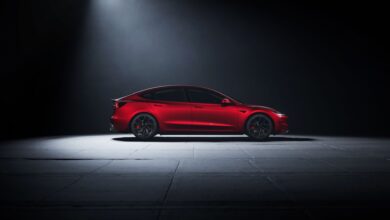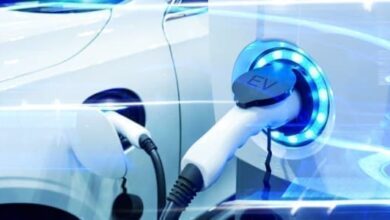French state and industry forge production pact for electric cars

The recently signed pact between the government, French business groups and trade unions envisages a quadrupling of electric vehicle sales to 800,000 per year by 2027. In addition, a six-fold increase in sales of light electric commercial vehicles to 100,000 per year is planned. The reference year is 2022 with 200,000 and 16,500 electric cars and light electric commercial vehicles sold respectively.
According to agency reports, the so-called “sector strategy agreement” also stipulates that 400,000 charging points must be set up along major transport routes and in large cities by 2030 and 25,000 fast charging points by the end of 2027. The agreement is also said to contain a chapter on “safeguarding sovereignty”, according to which stress tests of supply chains for critical materials are planned, among other things.
According to Bloomberg, although the government has not mentioned an explicit amount for new subsidies, it has promised to “continue to support the purchase and leasing of electric vehicles”. Reuters writes that the state is providing 1.5 billion euros to support the production and purchase of electric vehicles this year through various programmes. This was “reported” by the Ministry of Finance, the news agency specifies.
The background to the closing of ranks between the government and industry is that France believes it is at a pioneering threshold. In the words of France’s Minister of the Economy, Bruno Le Marie, it sounds like this: “The choice that has to be made is whether we want to be a country of (car) producers or a country of consumers. We have made the choice to be a big electric vehicle producer nation.” The development of the French electric car industry is essential for the country’s independence from oil producers and major car exporters.
After sales of Chinese vehicles soared last year, the government had already reacted in a rather unconventional way – and linked its environmental bonus for electric cars to the CO2 emissions from the production of vehicles and batteries. Previously, the “bonus écologique” was available for the purchase of a fully electric car regardless of manufacturer and country of production. However, since the beginning of the year, various environmental criteria have been taken into account, such as the characteristics of the vehicle model itself, the weight, the origin and environmental impact of the materials used, the life cycle assessment of the assembly plant and the transport routes to the point of sale.
It is practically impossible for Chinese manufacturers to fulfil the criteria. There is not a single electric car manufactured in China on the list of eligible vehicles published in December. However, around two thirds of electric vehicles sold in France are eligible, including many models from the Stellantis Group, Renault and German manufacturers. The Tesla Model Y from German production is also eligible. At the same time, Le Maire emphasises that the government welcomes the opening of plants by Chinese manufacturers such as BYD in France: “BYD is welcome in France and the Chinese auto industry is welcome in France,” he is quoted as saying. This statement is probably also directed at Xi Jinping, who is currently on a state visit to France.
As reported by Reuters, just under 20 per cent of new cars sold in France are currently electric, but only 12 per cent of these electric cars are manufactured in France. French President Emmanuel Macron has set the country’s car manufacturers the target of producing two million electric or hybrid vehicles by 2030. Le Maire has now reaffirmed this target, even though only 1.5 million vehicles were built in France in 2023 across all drive types.



